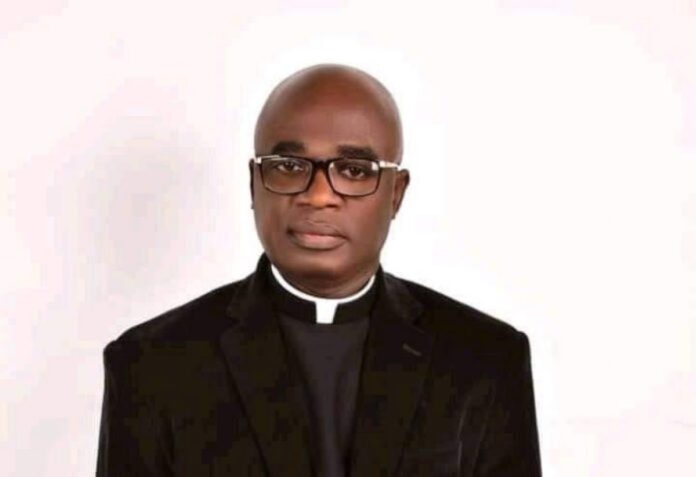Benue State Governor, Rev. Fr. Hyacinth Alia, has rejected the idea of citizens arming themselves for self-defense amid a fresh wave of killings in the state.
He insisted that community policing remains the most effective approach to addressing the ongoing security crisis.
Speaking during an interview on AIT News on Tuesday, Governor Alia said although he personally believed that taking up arms might appear to be “common sense” in the face of rising insecurity, such a move would only deepen the state’s vulnerability.
I should carry, and I think that would make some very good common sense,” the governor said in reference to growing public calls for self-armament.
But where you have people who just decide to work up because of sentiments and emotions that are attached to what is happening with us and within us, I think we’re rendering ourselves a bit more vulnerable. So, I wouldn’t advocate for self-defense,” he added.
Instead, he urged residents and local leaders to sustain the demand for community policing, arguing that security solutions must be locally driven to be effective.
I would encourage us all to keep calling for community policing because it’s the only way. It’s only people from within the state and the local government who would understand what is going on with them,” Alia stated.
Governor Alia’s remarks come amid renewed attacks in Benue communities, where suspected herdsmen and bandits had left scores dead in recent months.
In June alone, over 100 people were killed in separate attacks on villages in the Gwer West, Ukum, and Guma local government areas.
According to local reports, the assailants often strike in the early hours, targeting farming communities, torching homes, and leaving residents displaced and traumatised.
The Benue State Emergency Management Agency (SEMA) estimates that over 1.5 million people remain internally displaced due to a decade-long cycle of violence.
The latest attacks have triggered public frustration and calls for residents to arm themselves as a last resort, especially in areas where federal security forces are thinly spread or altogether absent. Many community leaders, while condemning the violence, have expressed support for civilian defence measures.
However, Governor Alia’s rejection of self-defence advocacy underscores a deepening policy divide between state authorities and some local communities on how best to confront insecurity.








